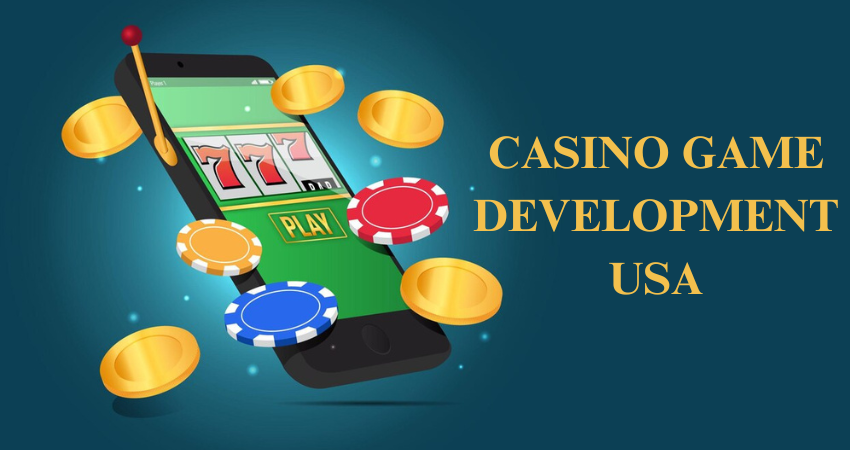Casino Game Development 101: Essential Tips for Aspiring Developers
Stepping into the world of casino game development is exciting. It’s an industry that combines high-stakes entertainment, advanced tech, and a deep understanding of human psychology. If you’re an aspiring developer wanting to build your own casino app or enter the field of casino software development, this guide will help you navigate the journey. Creating compelling, immersive casino games requires more than just coding skills – it involves game mechanics, legal compliance, and an insight into what keeps players coming back for more.
In this blog, we’ll cover essential tips to help you as an aspiring developer make your mark in the casino game development industry. From choosing the right platform to understanding player psychology, let’s dive in!
1. Know the Casino Game Development Landscape
Before diving into development, it’s important to understand the casino game industry’s ecosystem. There’s a wide array of casino games, from slots and poker to table games like blackjack and roulette. A top casino game development company focus on designing games that can appeal to a broad audience or niche segments. Some games are purely chance-based (like slot machines), while others require skill and strategy (like poker).
Understanding this landscape will help you identify the right type of game to develop. For instance:
- Slots are the most popular due to their simplicity and reliance on chance, appealing to a vast audience.
- Poker requires skill and offers a strategic gameplay experience, attracting more competitive players.
- Table Games like blackjack or roulette are classics that continue to engage players with their mix of luck and strategy.
Learning about different games and the psychology behind each type will help you decide what’s most feasible and appealing for your app.
2. Start with a Clear Vision
Every successful casino game begins with a clear concept. You might want to design a unique slot game with a creative theme, or perhaps a poker app that emphasizes social interaction. Having a vision will guide every part of your development process and keep you focused on what makes your game different from others. Remember, online casino game developers often build around unique themes and user experiences to stand out in a crowded market.
Consider the following questions:
- What will make your game fun and engaging?
- Are you designing for a specific type of player?
- Will your game emphasize graphics, gameplay, or rewards?
Knowing your goals helps you shape the mechanics, visuals, and flow of your casino game.
3. Pick the Right Platform
In today’s market, mobile gaming is booming. A large number of casino players prefer gaming on mobile devices due to the convenience. This is why many casino software development projects are geared towards mobile platforms. However, desktop and web-based casino games still have a strong user base, particularly in social or skill-based games like poker and card games.
Some tips for choosing your platform:
- Mobile (iOS/Android): If you want to reach a wider audience, mobile is the way to go. Casino games are particularly popular on mobile, as players enjoy gaming on-the-go.
- Desktop/Web: Developing for the web can allow broader reach and easier access. Web apps are typically browser-based, making them accessible on both desktops and mobile devices.
- Cross-Platform Compatibility: If your goal is to attract as many players as possible, consider a cross-platform approach. Tools like Unity and HTML5 can help you build a game that runs seamlessly across platforms.
4. Familiarize Yourself with Legal and Regulatory Requirements
Casino gaming involves real money transactions, which are heavily regulated in many regions. Regulations vary significantly between countries, and non-compliance can lead to hefty fines and even a ban on your app.
Key points to consider include:
- Licensing: If you plan to include real-money gambling, you’ll need a gaming license. Some of the popular licenses come from jurisdictions like Malta, Gibraltar, and the United Kingdom. A license ensures that your game is legitimate, fair, and in line with legal standards. You can read about the important tips for licensing here.
- Player Age Restrictions: You must incorporate age verification processes to restrict minors from accessing the game.
- Security: Your game needs to comply with data privacy laws, like GDPR in Europe. Security protocols to protect player data and prevent hacking are essential.
Staying compliant will give your players confidence in your game and prevent any legal issues down the line.
5. Design for Engaging User Experience (UX)
Casino games rely heavily on user engagement. If players don’t find your game fun or easy to navigate, they won’t stick around. This is where casino game development companies excel – they prioritize player experience to ensure people come back.
Some UX tips to consider:
- Simplify Navigation: Players should easily understand how to start a game, place a bet, and access account settings.
- Keep it Exciting: Use animations, sound effects, and reward-based mechanics (like leveling up or jackpots) to enhance the experience.
- Optimize for Mobile: Mobile-friendly design, such as large buttons and intuitive touch controls, can greatly improve the gaming experience.
A well-thought-out UX can turn casual players into loyal users and drive better retention rates.
6. Develop Strong Game Mechanics
The core of any casino game is its mechanics, which should feel fair yet exciting. For example, slot games rely on random number generation (RNG) to ensure fairness, while card games require rules that encourage strategic play. Building a strong understanding of probability and game theory will help you create enjoyable and challenging mechanics.
Here’s how to develop strong game mechanics:
- Random Number Generators (RNG): RNG technology is crucial in games of chance, as it provides fair outcomes.
- Reward Systems: Develop a balanced reward system with features like free spins, bonuses, or jackpot prizes. This keeps players motivated to continue playing.
- Leveling and Progression: Players are more likely to return if there’s a sense of progression. Consider incorporating levels, achievements, or tournaments to add depth to the experience.
7. Prioritize Security and Fairness
Trust is essential in any casino game. Players need assurance that the game is secure and that outcomes are fair. Casino software development must prioritize building robust security to protect player information and funds.
Consider these security measures:
- Secure Transactions: Use encrypted payment gateways to protect transactions. It’s crucial to support popular and secure payment methods.
- Anti-Cheating Mechanisms: Casino games need mechanisms that prevent cheating, as unfair play can ruin the experience for others and harm your reputation.
- Regular Audits: Periodic audits by third-party firms can verify that your game’s RNG is fair and the gameplay is balanced. It’s common practice among professional casino game development companies to ensure credibility.
8. Build Social and Multiplayer Features
Online casino games are highly social. Many players enjoy interacting with others, either through competitive play or community features. Adding social elements to your game can significantly increase engagement and appeal.
Popular social features include:
- Multiplayer Mode: Games like poker or blackjack become far more engaging when players can compete against each other.
- In-Game Chat: Allowing players to chat during gameplay builds a sense of community and makes games more interactive.
- Leaderboard and Tournaments: Players are often motivated by competition. Leaderboards, achievements, and periodic tournaments can add an exciting dimension to your casino game.
9. Optimize for User Retention and Monetization
User retention and monetization are critical for success in the casino game industry. Monetization strategies need to feel rewarding and fair, not manipulative.
Effective monetization strategies include:
- In-App Purchases: Offering players the chance to buy virtual coins, extra lives, or unlock special features can drive revenue.
- Ad Monetization: Integrate ads strategically to avoid interrupting gameplay. Rewarded ads, where players receive in-game benefits for watching ads, are a popular option.
- Subscription Models: Offering a VIP subscription with exclusive perks can be lucrative for loyal users.
Tracking player behavior and feedback can help you adjust and improve monetization without harming the gaming experience.
10. Test, Test, Test!
Thorough testing is essential in game development, especially for casino games that involve real money. Testing helps identify bugs, optimize performance, and ensure that gameplay is smooth and enjoyable.
Types of testing you should consider:
- Alpha and Beta Testing: Early versions of your game should be tested internally (alpha) and then with a small group of users (beta) to gather feedback.
- User Acceptance Testing (UAT): This stage ensures that the game meets player expectations.
- Compliance Testing: Casino games have to undergo strict compliance checks, especially if you’re applying for a gaming license.
Conclusion: Your Path to Success in Casino Game Development
Entering the casino game development industry is a thrilling journey that offers unique challenges and rewards. By understanding the essential elements – from casino software development best practices to user engagement techniques – you can create games that captivate players and keep them coming back. Whether you’re working solo or part of a casino game development company, focusing on quality, compliance, and player experience will set you on the right path.
The casino gaming industry holds vast potential for innovative developers who are eager to create new and engaging gaming experiences. So, gear up, dive into the tips above, and start building your casino game – who knows, you might just create the next big hit!
Also, read about the essential elements to include in your website homepage design.














Post Comment